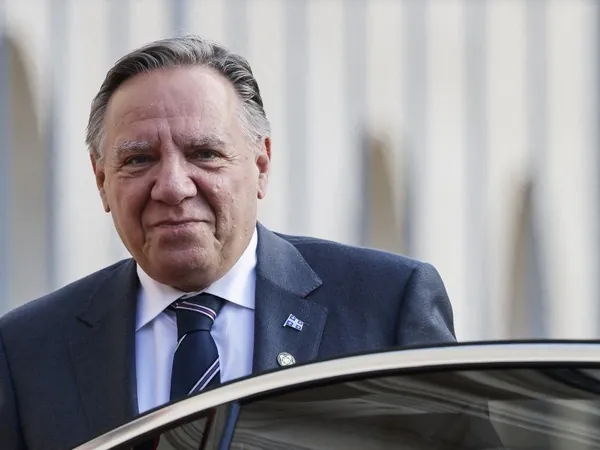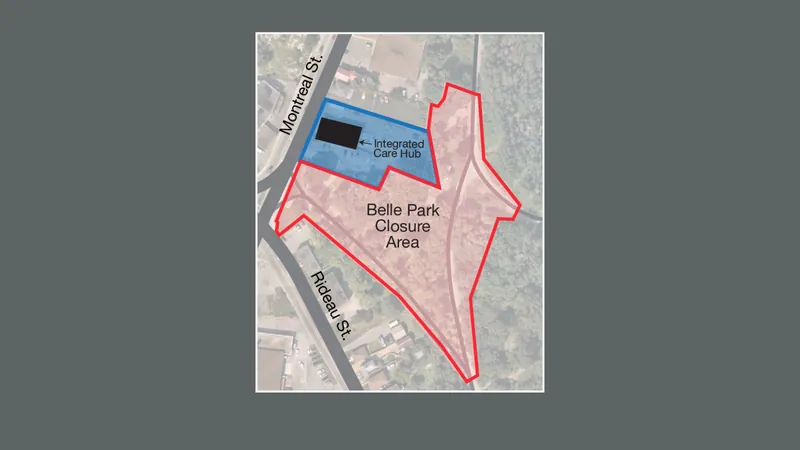
Quebec Premier's Controversial Asylum Comments Ignite Political Firestorm at Francophonie Summit in Paris
2024-10-05
In a shocking turn of events during the recent Francophonie summit in Paris, Quebec Premier François Legault’s candid remarks about asylum seekers set off a firestorm of reactions across Canada. What was intended as a diplomatic trip to strengthen ties with France quickly became a hotbed of political controversy, with implications that resonate far beyond provincial borders.
Days before the summit, Legault expressed his frustration to reporters over the overwhelming number of asylum seekers arriving in Quebec. According to him, out of the 285,000 asylum claimants who came to Canada last year, an astonishing 160,000 settled in Quebec. Premier Legault proposed that half of these individuals should be redistributed to other provinces to alleviate the pressure on Quebec's resources.
His statement was met with immediate skepticism and criticism, notably from Federal Immigration Minister Marc Miller, who was visibly taken aback. Miller questioned whether the premier suggested forcibly relocating individuals from their homes, a notion he deemed both legally questionable and morally indefensible. "You can’t just move people against their will," he stated, highlighting the complexities involved in such a proposition.
Critics within Quebec also voiced their disapproval. Marc Tanguay, interim leader of the Quebec Liberals, condemned the idea, labeling it “unacceptable and inhumane.” He underscored the risks of compelling established families to uproot themselves and pointed out the emotional ramifications of such actions.
In defense of Legault's comments, Quebec Immigration Minister Jean-François Roberge pushed back against the backlash, asserting that the premier had not employed “xenophobic” language and emphasizing that those deeply rooted in the community should not be coerced into relocation. His stance seemed to suggest that only those with no ties to the region could be transferred, which he argued might be beneficial for their integration.
As the debate raged on, Legault made it clear he was not backing down. He reiterated his calls for mandatory movement of half the asylum seekers in Quebec, stirring further discontent among a wide array of political figures. Some experts in constitutional law have raised alarms about the legality of such mandatory relocations, fearing it could infringe upon individuals' rights and freedoms.
The Quebec Human Rights Commission has remained somewhat neutral, with officials indicating that without a concrete plan, it's challenging to weigh in on such proposals. Commission chair Philippe-André Tessier referred to Legault's comments as “hypothetical” and emphasized the need for thorough consideration of human rights implications.
As the fallout from Legault's remarks continued, the political atmosphere in Quebec intensified. The Parti Québécois (PQ), a party advocating for Quebec's independence, ridiculed the premier's plan, asserting that such drastic measures would tarnish the province's image and undermine its commitment to human rights.
In the midst of a heated election cycle, where immigration and asylum policies are front and center, Legault's comments will likely play a significant role in shaping the political landscape in Quebec. As both provincial and federal governments wrestle with the logistics of asylum processing and the moral considerations of relocation, the debate over how to handle immigration in Canada remains increasingly contentious.
As discussions evolve, it’s clear that the ramifications of Legault's statements will extend far beyond France's borders, influencing public perception and policy in ways that could change the trajectory of Quebec’s immigration policies for years to come. Keep an eye on this story as it unfolds, as the implications for asylum seekers and Canadian society alike are profound!









 Brasil (PT)
Brasil (PT)
 Canada (EN)
Canada (EN)
 Chile (ES)
Chile (ES)
 España (ES)
España (ES)
 France (FR)
France (FR)
 Hong Kong (EN)
Hong Kong (EN)
 Italia (IT)
Italia (IT)
 日本 (JA)
日本 (JA)
 Magyarország (HU)
Magyarország (HU)
 Norge (NO)
Norge (NO)
 Polska (PL)
Polska (PL)
 Schweiz (DE)
Schweiz (DE)
 Singapore (EN)
Singapore (EN)
 Sverige (SV)
Sverige (SV)
 Suomi (FI)
Suomi (FI)
 Türkiye (TR)
Türkiye (TR)